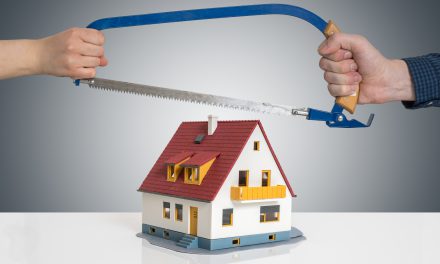A high rate of homeownership indirectly increases unemployment, according to a study by the Peterson Institute for International Economics.
High homeownership reduces job mobility: owners stay put longer than tenants and are less able to pull up roots for new opportunities. Never-ending commutes from the suburban edge – the epicenter of homeownership– also make it difficult for workers to get to jobs. Not-in-my-backyard (NIMBY) protests from entrenched homeowners stifle job-producing innovation and new development nearby.
These factors drag down job growth and dampen economic recovery in suburban areas where a majority of people own their homes.
first tuesday Insight
A prisoner in your own home. We’ve been saying it for years: homeownership is not the socioeconomic bedrock our national policies make it out to be.
The past decade’s millennium boom-gone-bust conditions have forced a couple million homeowners in California to stay put. They have no ability to sell their over-encumbered homes and move to better jobs.
Related articles
New York Times: “Owning a Home Isn’t Always a Virtue”
And yet, government subsidies continue to disproportionately favor homeownership. A star example: the mortgage interest deduction. Valued at $70 billion annually, it’s the lion’s share of federal housing subsidy, according to the Center for Budget and Policy Priorities (CBPP). Renters receive no such concessions, save for the tiny portion who qualify for rental housing assistance.
Zoning policies discourage greater density in the city center in favor of single-family, owner-occupied suburban development on the periphery. This limits multifamily housing options in areas with high employment accessibility. When new construction fails to meet urban housing demands, property resale values soar – great for owners, less so for renters.
Related articles
Rather than protecting and promoting homeownership at virtually any cost, let’s balance benefits for both SFR homeowners and multifamily owners and tenants. Renter tax credits will benefit renters by leveling the playing field without taking from those who own their homes. Better yet, more permissive multifamily development zoning will quickly reduce the supply-side deficiencies.
Related articles
CBPP: Renters’ Tax Credit Would Promote Equity and Advance Balanced Housing Policy
Make no mistake: homeownership is not going away, but the days of supermajority homeownership are over. That isn’t such a bad thing: people will still consume housing, no matter the form.
As the homeowner population declines, the rental market will continue to gain volume. The greater frequency of tenant turnover will serve to sustain that volume. Property management and rental property brokerage are steady, recession-proof gigs — they may also be the new reality for real estate professionals.
Re: “Challenge to Dogma on Owning a Home,” from the New York Times
and “Does High Home-Ownership Impair the Labor Market?” from the Peterson Institute for International Economics (.pdf download)















This article is so much government induced bologna. Home ownership is a cornerstone of the community and family. When society no longer cares about the family, the next step is to discourage home ownership. The concept to not own is really a reversal of many centuries of western civilization, but a lot has been upturned lately. Come on First Tuesday, think.
Regarding home ownership; My friend was renting a nice middle income home as he didn’t beleive in home ownership. In October he was given a notice to vacate as the owners wanted to move back in. It was a tight rental market for homes in the area, his kids were in the schools they liked, The holidays were fast approaching and it was very uppsetting to the entire family. I was able to find them an acceptable house to purchase so they didn’t have to go through that trama again. Dave